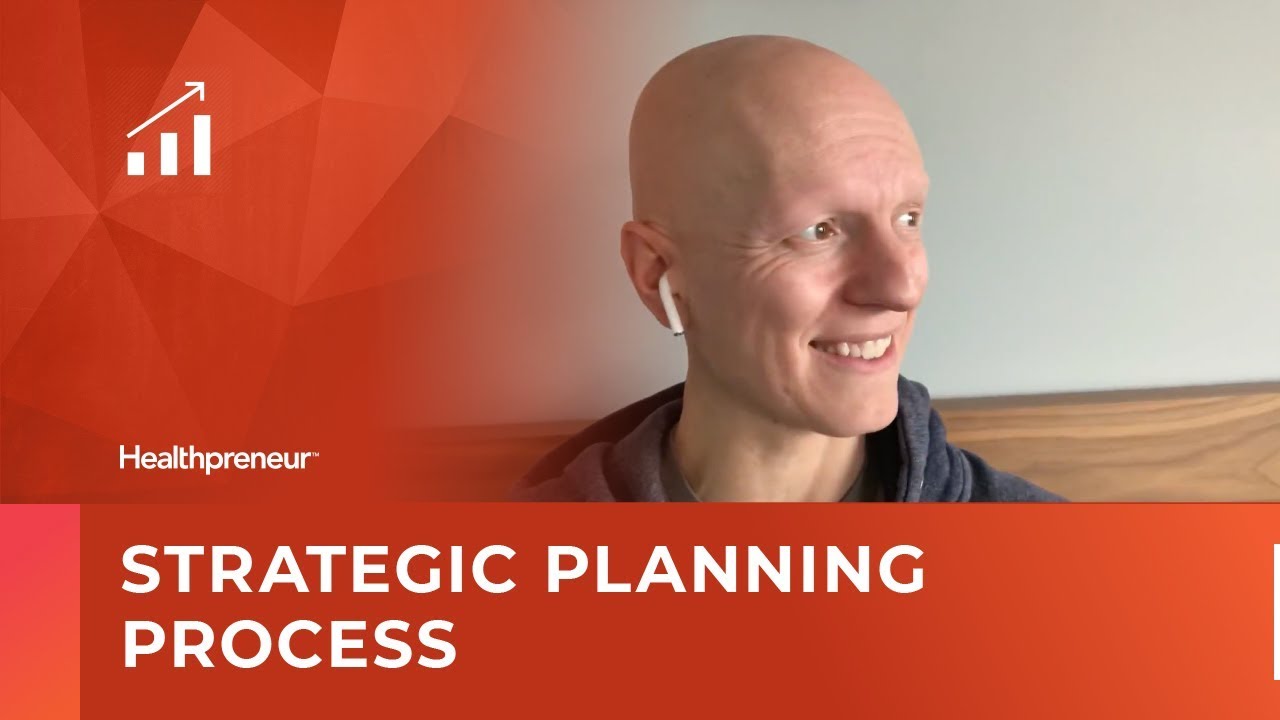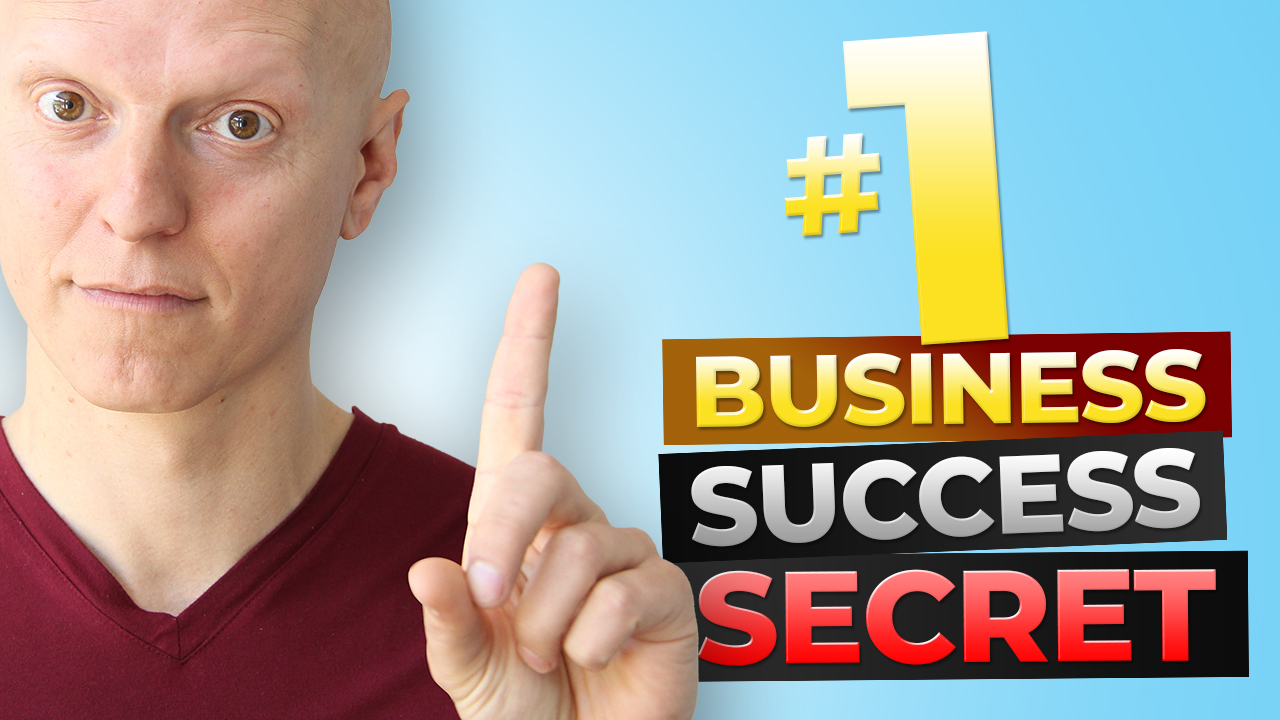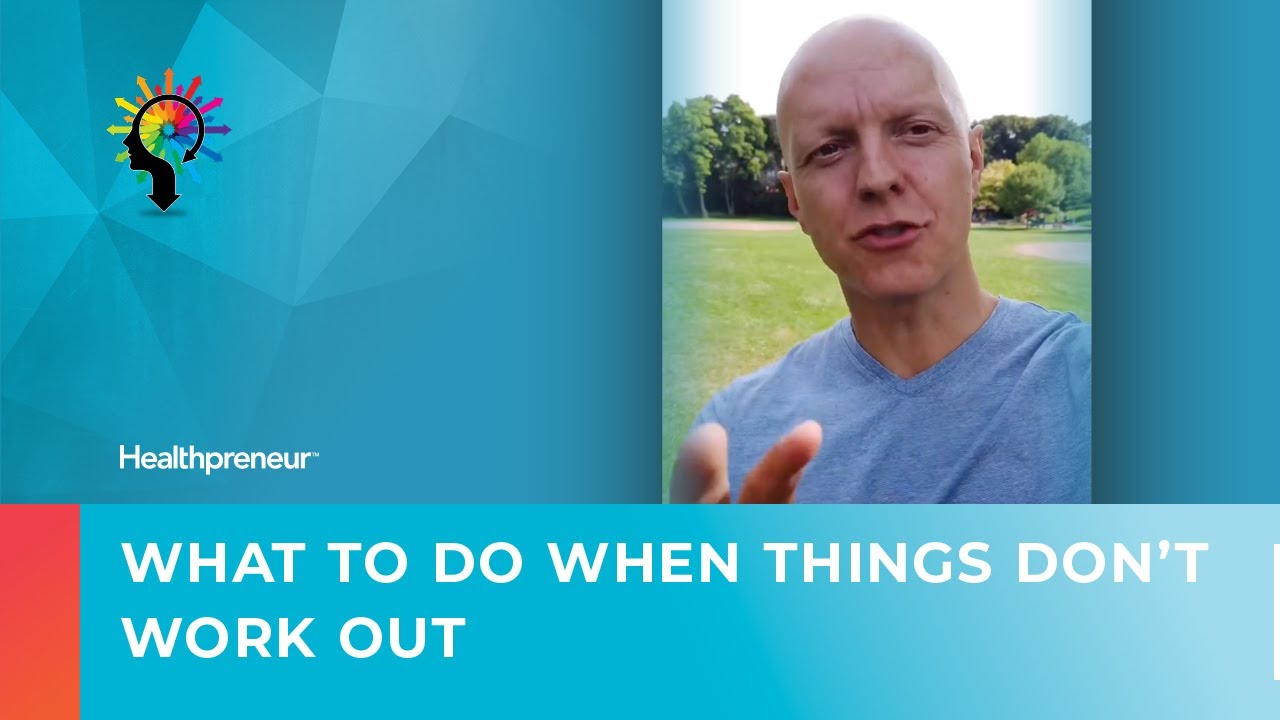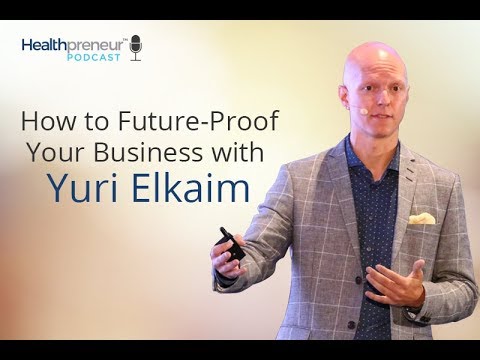7 Simple Ways to Create a Breakthrough in Your Business
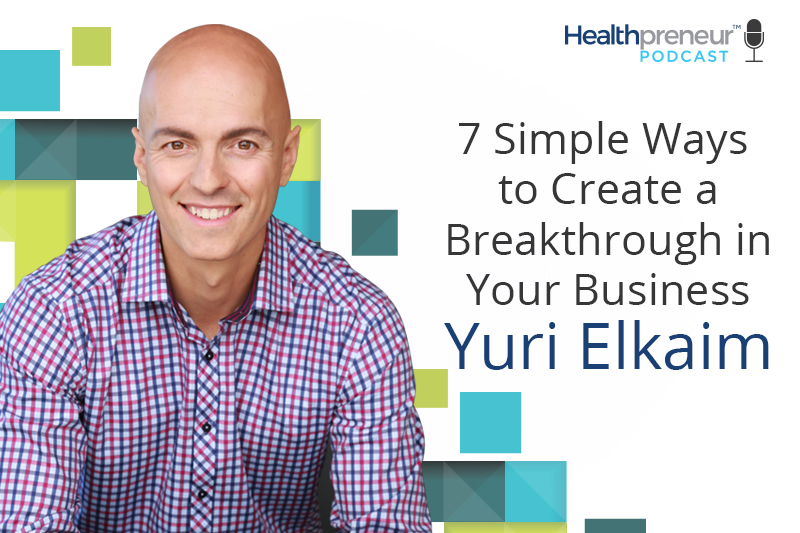
Hi, friends! Welcome to the Healthpreneur podcast. Today we’re going to discuss how to create a breakthrough in your business. Who doesn’t want a breakthrough, right?
I’ve got seven strategies to get to the next level in your business that are a little different than what you might be used to. In this episode, we will not be talking about what external factors can create an impact in your business, but rather what you can do for yourself and your own awareness to get you where you want to be.
Let me explain. Real breakthroughs don’t happen to those that aren’t ready for them. To open yourself up to receive that next step, you must work on clearing and prepping your mind to make way for ideas and inspiration. Tune in to hear seven easy strategies so you can enjoy that big breakthrough in your business when it comes your way.
In This Episode I discuss:
1:00 – 2:00 – What we want and how to get there
2:00 – 8:00 – Meditating and writing down ideas
8:00 – 12:30 – Scheduling thinking time and spending time with great people
12:30 – 17:30 – Spend more time in nature and less time in front of the computer
17:30 – 21:00 – Ask better questions and receive support
Transcription
Hey, friends. How’s it going? Yuri back with you. Today, we are going to look at how to create a breakthrough in your business because if you’re listening to this you’re probably here because you have a health or fitness business. And if you’re an entrepreneur we all want breakthroughs in our business. We all want to go to the next level. We all want to make more money, enjoy more freedom, impact more people. And that’s what I’m here to help you do.
In this episode I want to share seven little strategies you can use to help you do just that. And I think what you’re going to find is that they’re actually not what you’re thinking. They’re kind of counterintuitive. They’re not the specific post to social media five times a day type of stuff.
But I really believe that these are seven fundamental things that will propel you forward that are much more powerful and important than the tactical type of stuff.
So if you’re okay with it, let’s just jump right in.
What we want and how to get there
So the number one thing we can do, I believe, is to meditate every single day. Now if you listen to this podcast for any amount of time, a lot of the guests have talked about their morning routine and one of the first things they do in the morning is meditate.
Now, I’ve gone through peaks and troughs over the last couple years with respect to mediation. And I’ve gone through periods where I meditated every single day first thing in the morning. And for me personally what I recognized is I can’t do that. I can’t get out of bed and then kind of go back to bed, if you will, for 20 minutes.
Meditating
So for me, my meditation’s a little bit different. And for you, you want to figure out what your meditation is. And depending on who you speak to … some people are real purists when it comes to mediation. Like no guidance, nothing, clear your mind. Others are a bit more liberal in the sense of you can get out in nature or work out or do something that’s going to clear your mind and just allow you to stay more aware of your mind as opposed to being in it all the time.
So, you really want to figure out what is going to be your version of that. And I highly recommend meditation. Obviously we know the health benefits of it. But I also think it’s a really good practice to build willpower and concentration. And I think those will transfer … well, I don’t think, I know … those will transfer over to every area of your life.
We know that a lot of people have an issue with task switching. So they go from one thing they’re working on to another thing. And they’re checking their phone. And they go check their email. And then back and forth. And they’re always changing tasks, they’re multitasking. And we know that this kills productivity and as a result of that it actually makes us less happy.
So these are far reaching benefits that can all be calmed and better controlled by meditation. At the end of the day, meditation allows us to control our awareness. And when we control our awareness we have the power to choose what we focus on. And since our life is a byproduct of our focus, it’s extremely important to train this aspect of what we have in our minds.
So I believe meditation is a terrific thing for any of us to do. Now, again, whether that’s first thing in the morning for you or later in the day, it doesn’t really matter, you want to figure out a schedule that’s going to work for you. So right now as I’m recording this, my ideal schedule is I get up in the morning, I work for 90 minutes on my most important stuff, then I’m with the kids, then I drop them off at school. And then the next hour and a half is for really working my body and mind.
So I’m usually working out seven days a week in some way, shape or form. It doesn’t mean I’m training all the time. It might mean that I’m working on supplements and flexibility. Other days I’m training more intensely. But within that I usually have a meditative component. Whether it’s after the workout or during the workout really challenging myself to focus on either clearing my mind, focusing on those bigger goals that I want to achieve and really, really just training my mind to stay focused on the task at hand or on that visualization that is meaningful to me.
So that’s my form of meditation. I also love walking my dogs, taking them out in nature. We’ve got some really nice paths around our house. So for me, that is a really nice way of doing that. So for you whatever that is that’s most important.
Write Down Ideas
Second thing is actually something I’ll be very honest with you, I’m kind of a hypocrite mentioning this because I actually don’t do this that much anymore. But it’s extremely powerful: Is writing down 10 new ideas first thing each morning.
I had a practice of doing this for quite some time and I’m not too sure why I stopped. Perhaps I just thought other things were a bit more important. Again, this comes back down to discipline, willpower, concentration. These are habits or muscles that we can strengthen.
When you write down 10 new ideas each morning what it does is it trains your mind to look for solutions. So for instance, I would write down as an example I believe if I can remember, how can I make a million dollars without relying on affiliates, advertising or creating new products? That was a question that I would put in my journal and then I’d have to come up with 10 ideas to make that a possible reality.
Why I love this exercise is because when you ask the right question … and you’ll notice that I put a couple parameters or restrictions on that question. I said without joint ventures, without advertising, without creating new products. What I did is I challenged myself to become more creative by putting constraints on the question.
So if you ask a question like, “How can I make a million dollars?” That’s fine. You can come up with ideas on how to do that. But you’ll find that when you put constraints on those questions and then you write down 10 ideas to figure out that problem, you’ll find the quality of those ideas is far greater.
So whatever challenge you’re dealing with on a daily basis or a weekly basis or whatever the goal is you want to work towards, challenge yourself to write down 10 ideas each morning in relation to a question that has some really interesting limitations on it. So I’ll leave that with you to ponder but it’s very powerful.
Even though I don’t do this every morning, it’s something I do do when I am looking to figure out how … that how question, which I’m not a huge fan of spending a lot of time to be honest with you. But sometimes it’s important to figure out the strategy especially if no one else has really done it before.
The easier way to do things is just ask somebody who’s paved the path already. To be like, “Okay, cool. You’ve done this. How do I do this? Can you just give me the blueprint?” But I really do think fostering creativity and innovation is important. So asking yourself a constraining question, jotting down 10 ideas is really, really powerful. And you’ll find that the first five or so ideas are mediocre. The next five, when you’re really challenged to come up with some ideas, that’s when the creativity kicks in.
Scheduling thinking time
Okay. Number three is schedule at least half a day each week to think with no electronics. So I used to have this ritual called Thinking Thursday’s, which has now morphed. Again, for me, the thinking really happens during my workouts. So even though I don’t really dedicate a full half day anymore to doing this, largely in part because my kids are finished school at 3:00 o’clock and I only have so many hours in a day where I really need to get my most important work done. So what I’ve done is I’ve really embedded my thinking into my workout time. And very much the same with my meditation.
So I might do some form of meditation during my workout or afterwards. But during the other part of my workout I’m really thinking of ideas where I’m listening to something that is going to foster some degree of breakthrough. But again, it’s important to balance input with nothing.
So you’re listening to a podcast right now where I’m giving you ideas and suggestions. And this is great. I’m all about this concept I call grow giving. The more you grow, the more you can give. But there needs to be a balance between consuming and you creating.
So one of the challenges I see a lot of people fall into is that they go from one podcast to the next. One audio book to the next. One whatever to the next. And I think it’s important to give yourself a bit of time to consolidate and allow things to just brew in your mind because you ultimately want to be coming up with your own thoughts. Because I believe that you’re listening to this because you’re a leader of some kind. And I believe it’s all of our duties to become a thought leader in some way, shape or form.
So you can be a thought repeater or you can be a thought leader. And a thought repeater is somebody who listens to a bunch of other people’s stuff and then just regurgitates it all over social media. A thought leader is somebody who goes through their own journey, develops their own wisdom and insights and is able to extract ideas and thoughts that can then be shared with the people that follow them.
Now obviously you can listen to ideas and kind of morph them and kind of work with those to come up with your own uniqueness. But the key is you need time away from inputs to just think and allow your brain to just do what it will do.
So this goes back to the meditate daily. Is a lot of your breakthroughs are going to happen when you actually are not listening to anything. When you go for a walk in the forest with no headphones on and you’re just in the moment. And having that space is really powerful. So I really want to challenge you to spend half a day of thinking where you can go for a walk, sit in a chair with no inputs. No phone, no audios, nothing. Just sit there. You can have a journal if you want. Just write down your thoughts and just do some thinking. It’s very, very powerful.
Hang Out With Inspiring People
Number four is hang out with inspiring people. This shouldn’t be any surprise. This is the reason why I love coaching is because when you coach clients, especially in a group setting, they’re forced to be in a group with other great people and collectively they raise each other up.
So if you’re a specific spot in your life in your business and you want to go to the next level, the easiest way to get there is find other people who are already there and naturally because we are very tribal people as humans, you’re going to be forced to raise your game so you can fit in, if you will, to that group.
So hanging out with inspiring people. Borrowing other people’s courage. Borrowing their beliefs of what’s possible is going to really help you accelerate your progress moving forward. And it’s exactly why we have our Luminaries mastermind where I work with clients over 12 months. And not only do they get a lot more access to me one-on-one but we come together three times a year to really collectively inspire each other and show each other what’s possible and really help us create breakthroughs in our respective businesses.
So it’s one of the most important things that I’ve ever done in my business was, again, as I mentioned before 2010 getting into my first live event. And before that trying to do things on my own just doesn’t happen. So if you think you’re a rugged individualist and you can figure things out on your own, two things are going to happen.
First is you’re not going to do that. Or second, if you’re like the smartest person on the planet maybe you’ll figure it out but it’s going to take you a very, very long time. The easiest way is just to get around other humans. Get around other people who are going to lift you up, inspire you. And that’s why it’s so important to be going to events, to be part of masterminds. And it’s really the fastest way to move forward.
Spend more time in nature and less time in front of the computer
Number five is spend more time in nature. Now, I’ve already alluded to this twice in respect to meditation and scheduling time to think. So I’m not going to spend too much time here. But I think we know that we as human beings feel best when we are outside. We don’t really feel great when we’re cooped up inside all the time. And that’s why in the winter … especially if you live up here in Canada … it can get pretty downright depressing. You’ve got the dark days … or the less sunlight or the darker days in general … and then you’ve got cold weather which forces most people to stay inside a lot of times, much more so than the spring and summer.
So we know that we’re not going to feel the best when we’re stuck in front of a computer or cooped up inside. So we need to find ways to get outdoors and connect to nature because there’s a grounding effect. Like these negative ions from nature, the magnetic force of earth. These are things that we feel not necessarily tangibly but at a deep level our body resonates with.
So whatever you can do to get out in nature is going to be massively powerful for helping you feel energized, fulfilled, happy, give you more clarity, reconnected. And these are all things that are extremely important.
And especially as entrepreneurs. We talk with a lot of people and we ask them, “What do you do for fun?” And the vast majority of times it’s things like hiking, playing outside, golfing, tennis. Like it’s all outdoor stuff. So get outside, spend more time outside.
Now, it follows that number six is spend less time in front of your computer. The breakthroughs are not happening when you’re hitting the keys. If you’re working on a presentation, if you’re working on a talk, if you’re working on a webinar for instance, the most important stuff is not the typing of the keys, it’s the ideas that you’re sharing. And the ideas that you’re sharing go back to your sitting on a chair with a journal or some type of worksheet to work through.
So a computer is nice to get the message to the masses. So right now this podcast I need the computer because I’m recording what I’m saying. But what I’m saying was preemptively thought away from the computer. Does that make sense?
So you have to understand that your most valuable asset is your mind. And your mind does not require being in front of a computer to work at its best. It actually works at its best when it’s in nature, when it’s meditating, when it’s thinking clearly. So as I say quite often, the best way to build your online business is to spend more time offline. So that’s a big one.
Ask better questions
And finally, number seven is to ask better questions. Now, we’ll got back to what I mentioned with writing down the top ideas or 10 new ideas every day. When you ask better questions you force yourself to come up with better answers. Or you get people to give you better answers. One of the most important things that we do as coaches is we should be doing is we should be asking questions of our clients not just dumping the answers on them.
But part of that is really asking them better questions so that they’re challenged to come up with better answers. So this goes both ways. It goes from you asking your clients questions. But it also works internally for yourself.
So if we look at how we talk to ourselves, a lot of times the self-talk is not ideal. And I can share this with my own experience from tennis. Tennis is a sport that I’m absolutely fascinated and obsessed with. And I play in the summertime, even actually in the winter when we travel as much as I possibly can. As much as my shoulder allows me to. I love it. I can’t get enough of it. It’s very frustrating though sometimes.
And what I’ve recognized is as good as I am, which is still not whatever, it’s good enough for now. But the biggest area of improvement for me is my self-talk. And really catching myself looking … Okay, when I’m behind in a game or in a match or if I’ve lost the set six-one and I’m getting blown out, what’s going on in my head? Am I telling myself, “Well there’s no way you’re coming back from this. What’s the point? Let’s just throw the game.” Am I coming up with all sorts of excuses? And I asking myself limiting questions like, “Hey, what’s the point?” Or, “I suck.” Whatever it is we have to be aware of the questions we’re asking ourselves. Not just in sports but in life in general. Because a lot of times if we spoke to other people the way that we spoke to ourselves we really wouldn’t have many friends.
So we want to be kinder to ourselves in the way that we speak to ourselves. But we also want to be asking better, more empowering questions. So if you’re in a bind … If I’m in a tennis match for instances … and this applies as easily to tennis or sports as it does to business. So let’s say I’m in a match and I’m losing and I can’t really see may way out of this. I need to really take a step back and ask myself, “Okay, what can I focus on to improve my performance?” That’s a better question because now it puts me in a more resourceful state to now figure out a solution.
So in business if you’re in a tough bind, you want to be asking yourself a very similar question. “What can I do right now to put me in a better position tomorrow? What’s the one most important activity I can be doing or the next most important action for me to take that’s going to move me forward in a positive direction?” So we want to be asking better questions because the questions we ask are going to determine the answers. Does that make sense?
So those are seven ways we can create a breakthrough in our business. And again, they’re not strategic or tactical. They’re a little bit more meta. But as a result of doing these seven things you will come up with a strategies and you will come up with the tactics and the better mindset to help you move forward to really achieve whatever it is that you want.
Lean on others and ask for support
Now as I said earlier, it’s important to not always try to figure out the how all by yourself. And it’s important to really lean on others who’ve come before you to speed your journey instead of you trying to figure everything out and spin your wheels and waste your time and money. And that’s exactly why we do what we do. That’s why we’re the leading company in the world for helping health experts build successful coaching programs. Because we’ve kind of figured this out and we help a lot of people in our space really accelerate their progress even if they’re starting from scratch to go where they want to get to.
So if you are in that position where you want to stop trying to figure out how to figure this thing out called business. And if you want a proven process, a proven framework, a proven blueprint along with the support to help you deploy it all and help you through those challenges to really help you fortify that mindset that is going to help you get where you want to get to with a lot more ease and less frustration, then I invite you first and foremost to go through our free training called the Seven Figure Health Business Blueprint.
If you haven’t watched it already, highly recommend you do so right now. Now, if you’re driving obviously don’t do it right now. You can pull over and watch on the side of the highway if you want. Or write this down or if you’re at your browser type this right into your browser right now. HealthpreneurGroup.com/training.
It’s a 70 minute presentation. I’m going to walk you through the old way of building a business, why it doesn’t work anymore. The new way of building a business that is a lot more predictable, enjoyable and profitable. And exactly the four step what we call Perfect Client Pipeline that we deploy in our business and we held our clients build out of their business so they can start attracting their ideal clients, charge premium prices, live a better quality of life. But most importantly is deliver an even better result for the clients they work with. So if that sounds good to you then again, go to HealthpreneurGroup.com/training.
All right. So thank you so much for joining me today. Hope you’ve enjoyed this one. Continue to get out there, be great, do great and I’ll see you in our next episode.
If you enjoyed this episode, head on over to iTunes and subscribe to Healthpreneur™ Podcast if you haven’t done so already.
While you’re there, leave a rating and review. It really helps us out to reach more people because that is what we’re here to do.
What You Missed
Our last episode featured James Swanwick, creator of Swannies blueblocker glasses who was also an anchor for ESPN.
In this episode James shared his journey and 5 steps to success.
James hasn’t always been confident. In fact, he started with a major fear of failure – and success! The story of how he overcame that is inspiring and sure to bring up some questions to ask yourself, too.
If you can relate to paralyzing fear or need a blueprint to finally accomplish your goals, this episode is for you!


